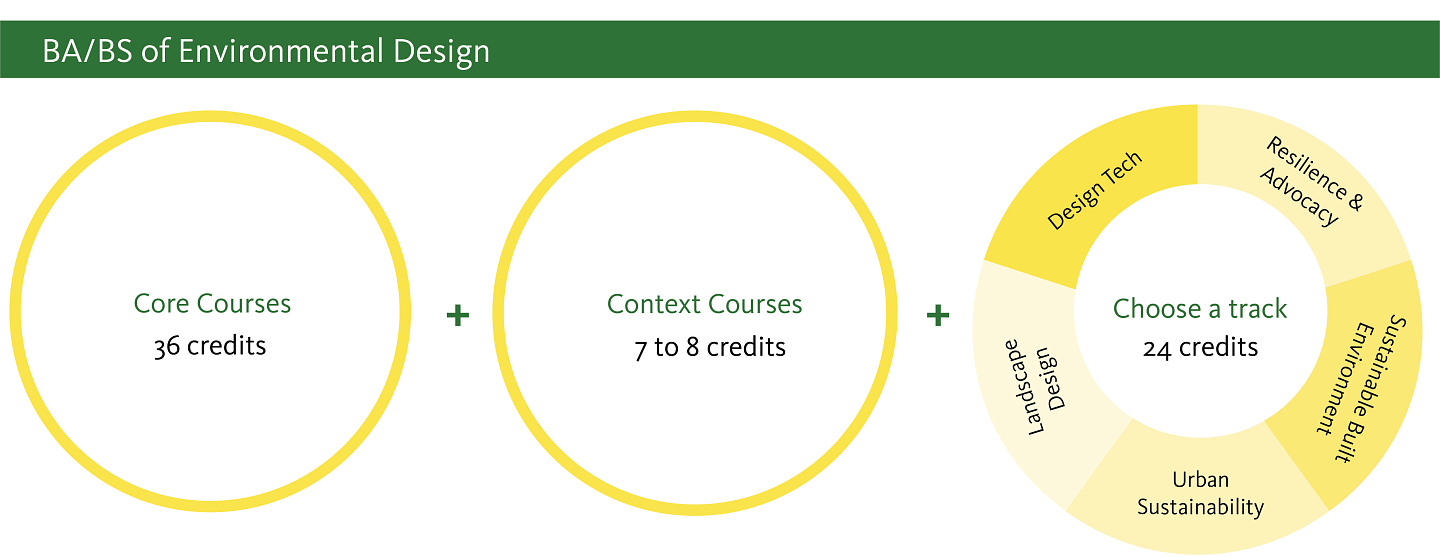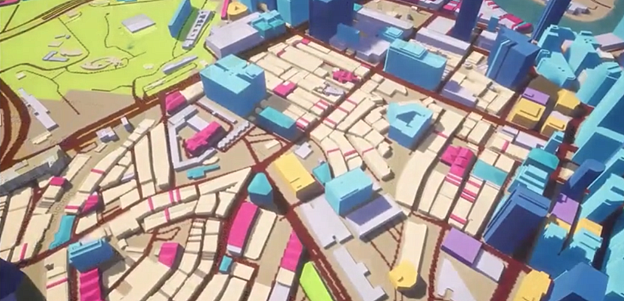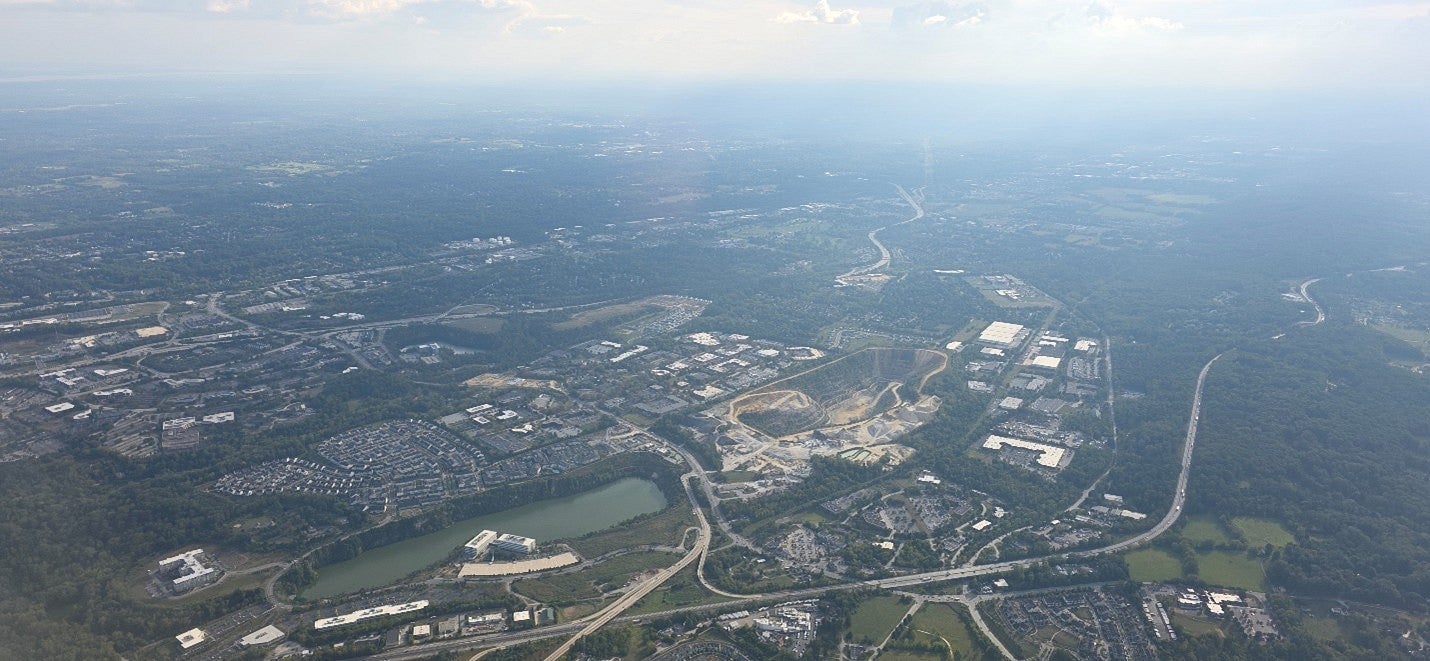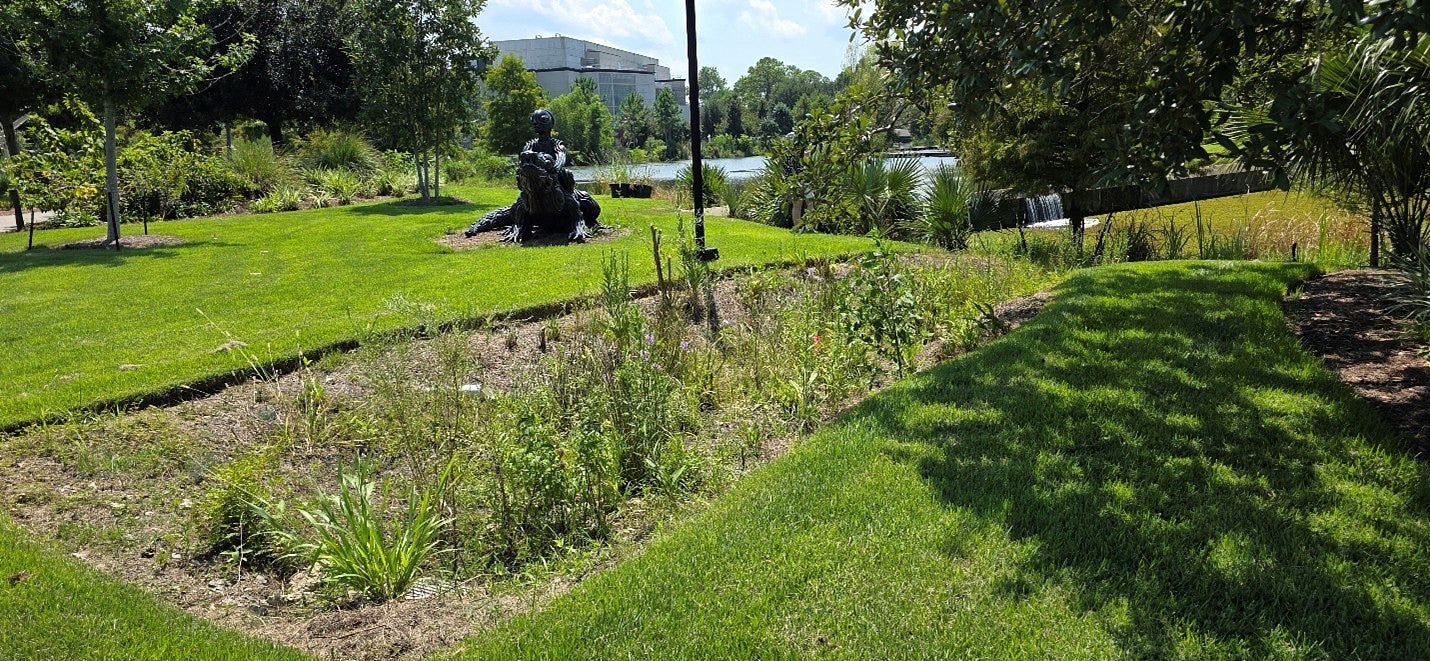Degree Overview
The College of Design at the University of Oregon provides undergraduate students with a design school experience supported by the resources and benefits of a large research university.
The Environmental Design program is a multidisciplinary BA/BS focusing on visual and spatial design skills applied to the context of environmental sustainability. This degree combines coursework from landscape architecture; architecture, interior architecture, planning, public policy, art, product design, and historic preservation.
Careers
The unique multidisciplinary structure will equip students with skills for a range of careers in government agencies, including parks and recreation; city planning offices; the National Park Service and Forest Service; environmental nonprofits; ecological restoration; and sustainable development. The degree will address student and professional demand for crafting creative cross-disciplinary solutions to imminent environmental challenges.
Curriculum
The Environmental Design (BA/BS) degree emphasizes design skills within the five-track areas of design technology, landscape design, urban sustainability, climate resilience and advocacy, and sustainable built environments. Key features of the degree include:
- Strong emphasis on data visualization skills on both large and small scales
- Strong emphasis on landscapes and the built environment
- Introduction to the use of sustainable materials and practices in both interior and exterior built environments
- Pathways to Master's degrees in design and planning
- Developing skills in visual modeling of environmental amenities, challenges, and solutions
- Conceptualizing, planning, and implementing design solutions for the built environment
- Exploring sustainable options in materials and materiality
- Producing compelling visual/spatial communications for environmental action
- Opportunities for double majors

BA/BS in Environmental Design
The degree starts with a broadly interdisciplinary mix of introductory design courses from a variety of academic fields within the College of Design. As students progress through the program, they choose one of five specified tracks to complete their elective requirements for the degree. Completion of the appropriate track can reduce the total credits required to complete a master's degree, if the student is interested in further professional training or licensure.
Environmental Design Tracks
The Environmental Design major offers 5 tracks that allow students to focus in an area of specialization. Each track is designed to prepare students for specific career pathways in environmental design. The limited credit requirement, 24, permits students to pursue dual-degrees, minors, specializations, and certificates in other programs to further their unique pathway to career readiness. The unique course offerings for each track are described below along with some potential careers.

Design Technology focuses heavily on the use of digital tools in environmental design and planning. Students on this track should plan on building skills and confidence in AutoCAD, GIS, Rhino, and new tech, like VR/AR/MR and AI as new faculty are hired and new course offerings are made available. This is a cutting-edge track with a high level of flexibility on track courses. Every environmental design and planning office needs confident and prepared students with a grasp of new and trending technology to help complete projects on time and to win new contracts. The background in environmental design provides the knowledge foundation to work in this arena, while the technology track meets an in-demand career area.

Resilience and Advocacy is the “boots on the ground” track for environmental design. The track should be of interest to students who want to make meaningful impacts in small towns, impacted ecosystems, and even urban neighborhoods. Coursework in advocacy, public policy, civic agriculture, environmental ethics and justice, will build skills and confidence to help students pursue a career that addresses disparities and advocates for critical environmental change. This track may lead to careers that scale from local government and community non-profits to national organizations like the Sierra Club and The Nature Conservancy.

Urban Sustainability focuses on big picture regional and global issues that effect everyone. Students will specialize in how urban areas can become more sustainable through land use planning and policy, development practices, laws and regulations, and urban and community design. The track has GIS mapping and anlysis built-in to make sure students have the tools needed to make environmental planning and design decisions that will have an immediate and long-term impact. Careers include environmental planning, urban planning, urban design, environmental protection, and real estate development.

Sustainable Built Environments is a holistic synthesis of art and design disciplines in the College of Design. The track is perfect for the interdisciplinary student interested in translating design across multiple domains. Major corporations, like Nike and Amazon, are increasingly looking for interdisciplinary students trained in the breadth of environmental design to respond to novel challenges.

Landscape Design is the non-accredited alternative to the Bachelor in Landscape Architecture and is intended for students who are committed to environmental design at the site scale. It is very common for ENVD students to choose this track in preparation for starting a small business in landscape design and construction. Landscape design has the highest percentage of self-employed, small businesses owners among the design professions.
Accelerated Master’s Degree
Environmental Design students who have completed at least one academic year of approved environmental design studios are eligible to apply for the accelerated MLA Track II degree at the UO. The combination of four years of undergraduate education in environmental design plus an accredited master's degree in landscape architecture positions students for job placement and career success in a competitive professional environment.
Culture
Design is a process of discovery, characterized by questioning, creating, testing, and evaluating. In the Department of Landscape Architecture, the administrative home of the BA/BS in Environmental Design, we strive to create environments that fulfill human needs and potential and are ecologically responsive and socially just.
Our departmental program, in content and spirit, combines professional training and skill building with a liberal education to develop the next generation of designers as sophisticated and effective agents of change. We are especially concerned with mobilizing a generation of designers to address imminent environmental challenges.
Courses for Environmental Design Majors
Required Core Courses
The first set of core courses, totaling 36 credits, introduce design principles across scales (from small to continental), species, and intention (from visual representation to planning). Students also complete a career development course early in their degree (ideally, sophomore year). The cross-disciplinary nature of the courses listed below allows Environmental Design majors to enroll in introductory courses in several degree fields.
Required Core Courses
Number of Credits
Type of Course
Note(s)
ARCH 201 Introduction to Architecture
4 credits
Required
IARC 204 Understanding Contemporary Interiors
4 credits
Required
ENVD 201 Environmental Design Careers
2 credits
Required
Targeted for student's second year in the program
LA 260 Understanding Landscapes
4 credits
Required
ENVD 289 Environmental Design Studio
6 credits
Required
ENVD 210 is co-required with ENVD 289.
LA 337 Design for Sustainable World
4 credits
Required
PPPM 205 Introduction to City Planning
4 credits
Required
PPPM 321 Inclusive Urbanism
4 credits
Required
PPPM 445 Green Cities
4 credits
Required
Context Courses
In addition to the required courses listed above, students select two courses (totaling 7 or 8 credits) from a list of additional field courses called context courses. This is intended as a final opportunity to widen the scope of design inquiry to include perspectives from additional fields and demonstrate the application of design principles in different career settings. Here, students may take a course in historic preservation to learn sustainability from the lens of the preservation of structures and cultural landscapes, or students might focus on art, visual culture, or sustainable product design. Courses in this section cannot count toward the minimum credits needed to complete a track.
Take two courses from the following:
Context Courses
Number of Credits
Type of Course
Note(s)
AAAP 411 Introduction to Historic Preservation
3 credits
Required/Select
ARCH 430 Architectural Contexts
4 credits
Required/Select
ARCH 440 Human Context of Design
4 credits
Required/Select
ARH 358 History of Design
4 credits
Required/Select
ARH 150 Introduction to Visual Culture
4 credits
Required/Select
ART 233 Drawing I
4 credits
Required/Select
PD 101 Introduction to Product Design
4 credits
Required/Select
Total Required Core and Context Credits:
43 credits required
Environmental Design Program Tracks: Choose One
The Environmental Design Program has five tracks that enable students who have completed most of the introductory coursework to develop field-specific skills. For example, students may take advanced coursework to develop their digital media skills in the Design Technology track. You must choose one of the five tracks: Design Technology, Landscape Architecture, Urban Sustainability, Resilience & Advocacy, and Sustainable Built Environments.
Design Technology Track Courses
Number of Credits (Minimum of 24)
Type of Course
Note(s)
ENVD 451 Landscape Media
2 credits
Required
ENVD 452 LA Media II
2 credits
Required
ENVD 453 LA Media III
2 credits
Required
LA 423 Drawing the Landscape
4 credits
Elective
PPPM 434 Urban GIS
4 credits
Elective
LA 415 GIS
4 credits
Elective
LA 450 Environmental Data Visualization
4 credits
Elective
LA 450 Advanced AutoCAD
4 credits
Elective
LA 459 3D Mapping with LiDAR
2 credits
Elective
LA 459 Sensing the Environment
2 credits
Elective
LA 459 Sustainable Sites
4 credits
Elective
ART 233 Drawing I
4 credits
Elective
GEOG 481 GIScience I
4 credits
Elective
Prerequisite for GEOG 482, 485, and 493.
GEOG 482 GIScience II
4 credits
Elective
Completion of GEOG 481 is required.
GEOG 485 Remote Sensing I
4 credits
Elective
Completion of GEOG 481 is required. Prerequisite for GEOG 486 and 490.
GEOG 486 Remote Sensing II
4 credits
Elective
Completion of GEOG 485 is required.
GEOG 490 Drones and Mapping
4 credits
Elective
Completion of GEOG 485 is required.
GEOG 493 Advanced Cartography
4 credits
Elective
Completion of GEOG 481 is required.
Landscape Architecture Track Courses
Number of Credits (Minimum of 24)
Type of Course
Notes(s)
LA 289 Foundations II
6 credits
Required
ENVD 451 Landscape Media
2 credits
Required
ENVD 452 LA Media II
2 credits
Required
ENVD 453 LA Media III
2 credits
Required
LA 439 Introductory Design I: Systems
6 credits
Elective
LA 439 Introductory Design II: Landform
6 credits
Elective
LA 439 Introductory Design III: Assemblies
6 credits
Elective
LA 474 History of Landscape Architecture I
4 credits
Elective
LA 475 History of Landscape Architecture II
4 credits
Elective
LA 440 Land Planning Analysis
4 credits
Elective
LA 423 Drawing the Landscape
4 credits
Elective
LA 326 Fall Plants
4 credits
Elective
LA 328 Spring Plants
4 credits
Elective
LA 415 GIS
4 credits
Elective
LA 413 Analyzing Land Systems
4 credits
Elective
LA 410 Sustainable Design Practices & Principles
4 credits
Elective
LA 459 Certifying Sustainability – SITESv2 Ratings
4 credits
Elective
LA 472 Landscape Architecture Theory
4 credits
Elective
ARH 457 Land and Environmental Art
4 credits
Elective
ARH 368 Arts and Visual Cultures of Climate Change
4 credits
Elective
Urban Sustainability Track Courses
Number of Credits (Minimum of 24)
Type of Course
Notes(s)
PPPM 434 Urban GIS
4 credits
Required
PPPM 442 Sustainable Urban Development
4 credits
Required
PPPM 440 Land Use Policy
4 credits
Required
PPPM 370 Global Sustainable Development and Policy
4 credits
Elective
PPPM 408 Workshop: Environmental Impact Assessment
4 credits
Elective
PPPM 432 Justice and Urban Revitalization
4 credits
Elective
PPPM 438 Topics in Transportation Planning
4 credits
Elective
PPPM 443 Natural Resources Policy
4 credits
Elective
PPPM 448 Collaboration
4 credits
Elective
Law 101 Introduction to American Law
4 credits
Elective
Law 201 Introduction to Environmental Law and Policy
4 credits
Elective
Law 310 Environmental Regulation
4 credits
Elective
ARCH 431 Community Design
3 credits
Elective
ARCH 435 Principles of Urban Design
4 credits
Elective
GEOG 481 GIScience I
4 credits
Elective
Prerequisite for GEOG 482, 485, and 493.
GEOG 482 GIScience II
4 credits
Elective
Completion of GEOG 481 is required.
GEOG 485 Remote Sensing I
4 credits
Elective
Completion of GEOG 481 is required. Prerequisite for GEOG 486 and 490.
GEOG 486 Remote Sensing II
4 credits
Elective
Completion of GEOG 485 is required.
GEOG 490 Drones and Mapping
4 credits
Elective
Completion of GEOG 485 is required.
GEOG 493 Advanced Cartography
4 credits
Elective
Completion of GEOG 481 is required.
ENVS 455 Sustainability
4 credits
Elective
ENVS 467 Sustainable Agriculture
4 credits
Elective
Resilience & Advocacy Track Courses
Number of Credits (Minimum of 24)
Type of Course
Note(s)
PPPM 101 Advocacy and Social Change
4 credits
Required
PPPM 201 Introduction to Public Policy
4 credits
Required
PPPM 340 Climate Change Policy
4 credits
Required
PPPM 443 Natural Resources Policy
4 credits
Elective
PPPM 444 Environmental Policy
4 credits
Elective
LA 326 Fall Plants
4 credits
Elective
LA 328 Spring Plants
4 credits
Elective
LA 441 Applied Ecology
4 credits
Elective
LA 390 Urban Farm
4 credits
Elective
LA 429 Civic Agriculture
4 credits
Elective
LA 410 Design for Climate Action
4 credits
Elective
PPPM 442 Sustainable Urban Development
4 credits
Elective
PPPM 440 Land Use Policy
4 credits
Elective
PPPM 370 Global Sustainable Development and Policy
4 credits
Elective
PPPM 408 Workshop: Environmental Impact Assessment
4 credits
Elective
PPPM 432 Justice and Urban Revitalization
4 credits
Elective
PPPM 410 Community Organizing
4 credits
Elective
IARC 476 History of Interior Architecture III
3 credits
Elective
ARH 457 Land and Environmental Art
4 credits
Elective
ARH 368 Arts and Visual Cultures of Climate Change
4 credits
Elective
ENVS 345 Environmental Ethics
4 credits
Elective
ENVS 435 Environmental Justice
4 credits
Elective
Sustainable Built Environments Track Courses
Number of Credits (Minimum of 24)
Type of Course
Note(s)
ENVD 451 Landscape Media
2 credits
Required
ENVD 452 LA Media II
2 credits
Required
ENVD 453 LA Media III
2 credits
Required
ARCH 430 Architectural Contexts
4 credits
Elective
ARCH 440 Human Context of Design
4 credits
Elective
ARCH 450 Spatial Composition
4 credits
Elective
Requires instructor approval.
ARCH 431 Community Design
3 credits
Elective
ARCH 435 Principles of Urban Design
4 credits
Elective
Dual location.
ARCH 437 Theory of Urban Design II
3 credits
Elective
Dual location.
ARCH 407 Sustainable Urbanism
3 credits
Elective
Dual location.
ARCH 407 Real Estate Development
3 credits
Elective
Dual location and offered alternating years.
ARCH 492 Environmental Control Systems 2
3 credits
Elective
Requires instructor approval.
ARH 314 History of World Architecture I
4 credits
Elective
ARH 315 History of World Architecture II
4 credits
Elective
IARC 444 Furniture: Theory & Analysis
3 credits
Elective
IARC 447 Color Theory and Application for the Built Env.
3 credits
Elective
IARC 474 History of Interior Architecture I
3 credits
Elective
IARC 475 History of Interior Architecture II
3 credits
Elective
IARC 476 History of Interior Architecture III
3 credits
Elective
ART 233 Drawing I
4 credits
Elective
Prerequisite for PD 370.
PD 370 Design Process
4 credits
Elective
Requires completion of ART 233.
PD 350 Objects & Impacts
4 credits
Elective
Requires completion of PD 370.
PD 340 Design for Use
4 credits
Elective
Requires completion of PD 350.

